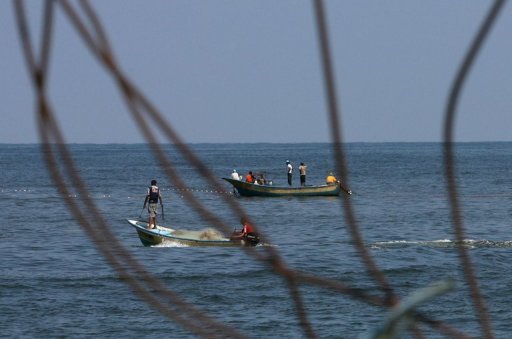Egyptian Minister of Foreign Affairs Sameh Shoukry said on Monday during his speech in the Organization of Islamic Cooperation that Qatar’s involvement in the conflict in Libya and supporting terrorists was proved by Libya’s Sanctions Committee’s report.
The speech came during the two-day 44th assembly of the Council of Foreign Ministers of the Organization of the Islamic Conference (OIC) in the Ivorian capital, Abidjan, which a Qatari delegation was attending.
Shoukry asserted that Qatar was given enough time to respond to the demands; however, the Qatari response did not include “serious solutions.”
Egypt, Bahrain, the United Arab Emirates (UAE), and Saudi Arabia announced in June cutting diplomatic ties with Qatar and shutting down air and sea ports for Qatari transport, for “Qatar’s support of terrorism and intervening with other counties’ policies,” and further announced a list of demands to resume diplomatic relations.
“It is unfortunate that we took such measures against Qatar, but we would like to assert that the decision only came after we were certain of Qatari practices of interference in other countries’ affairs,” Shoukry added.
Shoukry also asserted during his speech that the phenomenon of terrorism requires a comprehensive approach, including political, ideological, and developmental dimensions.
“Terrorists do not only carry arms, but also train, finance, and arm terrorism, as well as provide political and ideological coverage,” he said. “The battle against terrorism is primarily a battle of thought. This is why President Abdel Fattah Al-Sisi launched an initiative to correct religious discourse two years ago with the old religious institutions in cooperation with the leaders of thought and opinion in the Arab and Islamic world.”
Shoukry also warned of relief organisations, “which are affiliated to militant groups or adopt an ideology that justifies terrorism,” adding that Egypt would present a list of such organisations soon.
Calling for a two-state solution, Shoukry addressed the Palestinian issue during his speech, expressing Egypt’s intentions to revive peace in the region, not only in Palestine, but also in Libya, Syria, and in the whole of Africa.
On the sidelines of the assembly, Shoukry asserted to Secretary General of the OIC Yousef bin Ahmed Al-Othaimeen, Egypt’s support for the efforts made by the secretary general to improve the OIC performance, noting the importance of working to enhance these efforts, in light of the regional issues and the spread of the threat of terrorism and extremist ideologies.
Shoukry also discussed bilateral relations with several foreign affairs ministers on the sidelines of the 44th Council of Foreign Ministers of the OIC, including Indonesian Foreign Minister Riteno Marchudi, Central African Republic’s Charles Armil Duban, Mali’s Abdullah Daiub, Côte d’Ivoire’s Marcielle Amun, Giniea’s Makaly Kamara, and Saudi Arabian deputy foreign minister, Adel Sirag Mirdad, where he discussed the means of combating terrorism and extremist ideology and enhancing economic bilateral cooperation.
Furthermore, Libyan Foreign Minister Mohamed Taher Siala briefed his Egyptian counterpart on the latest developments in Libya as well as the concerns that hinder the political process, as well as discussed regional and international issues of mutual interest.
While Shoukry asserted that Egypt seeks a solution to ensure the stability of Libya and the protection of its institutions, stressing that a solution should be based on the United Nations (UN) sponsored Skhirat Agreement, which was signed in Morocco in 2015 and which aims at involving all parties of the political conflict towards unity.
Meanwhile, Palestinian Foreign Minister Riyad Al-Malki discussed with Shoukry bilateral coordination to support the Palestinian cause at regional and international levels, as well as recent Palestinian-American efforts. Shoukry also pointed out Egypt’s stance in supporting the establishment of a Palestinian state with East Jerusalem as its capital.
The OIC was established in September 1969 after the burning of the Al-Aqsa Mosque in Jerusalem.
The organisation currently has 57 member states, who address issues of concern to Muslim states, correct misconceptions about Islam, and counter discrimination against Muslims, according to the OIC website.
Moreover, the OIC interests include 18 priorities, including the issues of peace and security, Palestine, poverty alleviation, counter-terrorism, investment and project financing, food security, science and technology, climate change, sustainable development, culture, and human rights.



